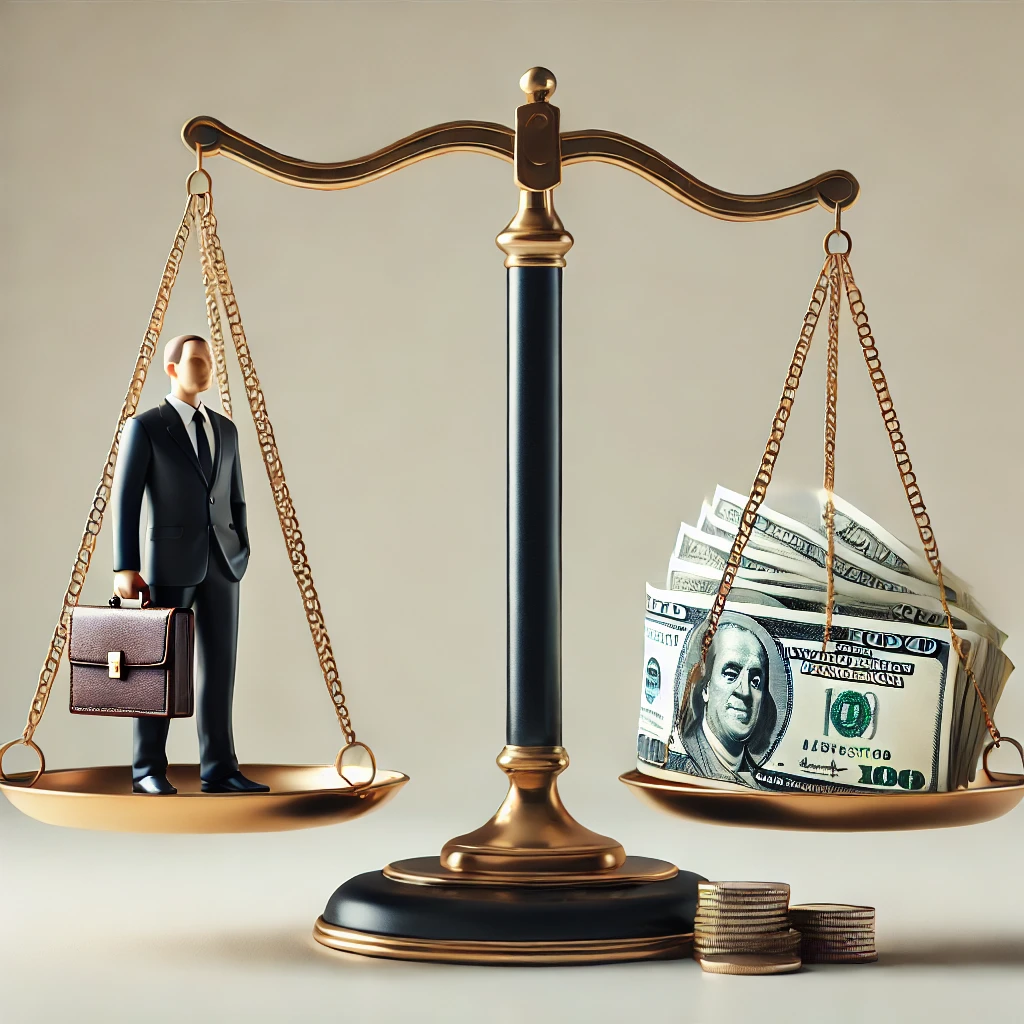Introduction: Understanding the True Cost
When facing criminal charges, one of the first questions people ask is, “How much will it cost to hire a criminal defense attorney?” While this is a crucial concern, the reality is that the answer is not always straightforward. There are several factors to consider, ranging from the complexity of the case to the experience of the attorney. In this article, we’ll expand on the points I made in my previous post, “The Way Attorneys Come Up With Their Fees Is By Balancing Several Important Factors,” and dive deeper into what determines the cost of criminal defense representation and how clients can make informed decisions.
1. The Complexity of Your Case
As I mentioned in my previous post, the complexity of your case plays a major role in determining the cost of legal representation. Cases that involve multiple charges, complex legal issues, or serious felonies will require more time and resources to defend. Attorneys often charge more for these cases due to the sheer amount of work involved, such as gathering evidence, negotiating with the prosecution, and potentially preparing for trial.
Cases involving simpler matters, such as misdemeanor offenses, may be less expensive because they generally require less time and preparation. However, even seemingly straightforward cases can come with complications, so it’s always important to discuss your specific situation with your attorney before assuming the costs.
2. The Experience of the Attorney
In my last article, I talked about how the experience and skill level of an attorney can influence how much they charge. Attorneys with more experience, particularly those who have handled numerous cases like yours, may charge higher fees. However, this often reflects the value of their expertise and their ability to navigate the complexities of the legal system effectively.
While it might be tempting to opt for a lower-priced attorney, keep in mind that a more experienced lawyer might actually save you money in the long run by negotiating better plea deals or helping you avoid costly legal mistakes. I often say that hiring the right lawyer is like choosing a tattoo artist—sometimes paying more upfront ensures that you get the quality you’re looking for.
3. The Importance of Transparency
Many attorneys offer different fee structures, which I touched on in my original article. Some attorneys may charge a flat fee for their services, particularly for straightforward cases. This can provide you with a clear understanding of the total cost from the outset. However, for more complex cases, many lawyers will charge hourly rates, meaning the final cost will depend on how much time your case requires.
It’s important to have an open and transparent conversation with your attorney about how fees are structured, what’s included in the fee, and whether there are any additional costs (like court fees or expert witness fees) that you should anticipate. Make sure you feel comfortable with the fee arrangement before moving forward.
4. How Plea Bargains and Trials Affect Costs
Another factor that can significantly influence the cost of legal representation is whether your case is resolved through a plea bargain or goes to trial. Trials tend to be more expensive due to the amount of preparation involved, the length of the trial itself, and the additional expenses like expert witnesses, jury selection, and more.
In some cases, a skilled attorney can negotiate a favorable plea deal, which may save you money by avoiding a costly trial. However, not all cases can or should be settled with a plea, and an attorney’s willingness to take your case to trial should be a factor in your decision-making process. Be sure to ask your attorney about how the path of your case could influence the total cost.
5. Additional Considerations: Overhead and Availability
As I discussed previously, an attorney’s overhead—rent, administrative staff, research tools—also plays a role in how much they charge. Attorneys must balance their availability with their current caseload, and the more complex a case, the fewer additional clients they can take on. This scarcity of time can drive up fees for more involved cases. I often have to assess the impact that taking on a new case will have on my ability to work on other matters, and this too plays into the cost.
6. The Value of Quality Representation
Ultimately, the cost of hiring a criminal defense attorney should be viewed as an investment in your future. The consequences of criminal convictions—fines, imprisonment, a permanent criminal record—can have a profound and lasting impact on your life. Hiring an experienced, competent attorney who is committed to providing you with the best possible defense is worth the price.
As I always tell my clients, you get what you pay for. Choosing a lawyer isn’t just about finding the cheapest option; it’s about finding the attorney who will best protect your rights and give you the strongest defense possible.
Conclusion: Choosing the Right Attorney
In conclusion, the cost of hiring a criminal defense attorney can vary greatly depending on the specifics of your case, the experience of the attorney, and how the case is resolved. It’s important to have open conversations with your attorney about fees and to be aware of how these costs align with the value of quality legal representation. If you’re facing criminal charges and need a defense attorney who will provide a transparent, honest approach to fees, contact my office today. Together, we’ll ensure you understand every aspect of the cost and that you receive the best possible defense.

